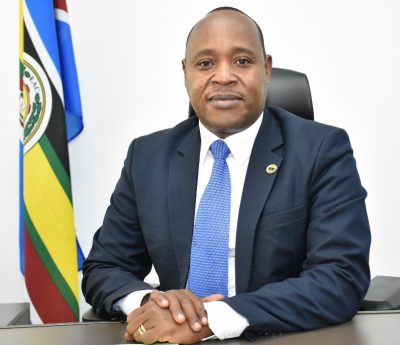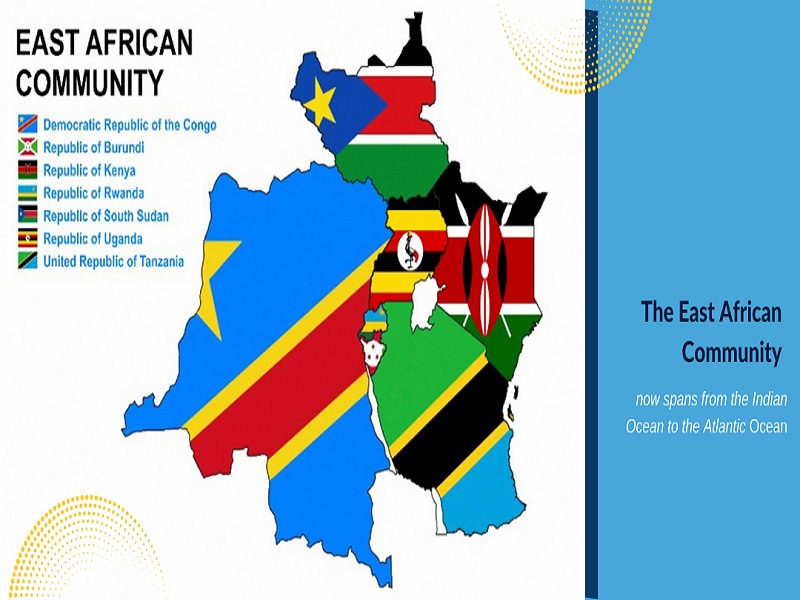The East African Community’s Rapid Expansion Carries with It Pros & Cons

All Global Research articles can be read in 51 languages by activating the Translate Website button below the author’s name.
To receive Global Research’s Daily Newsletter (selected articles), click here.
Click the share button above to email/forward this article to your friends and colleagues. Follow us on Instagram and Twitter and subscribe to our Telegram Channel. Feel free to repost and share widely Global Research articles.
***
Without its founding members’ comprehensive integration in a meaningful economic, political, and/or security sense, growing to include other states can be seen as little more than signaling to foreign partners with the presumed intent of attracting investment into their group. That’s not to say that the East African Community shouldn’t expand, but just that doing so before there’s a solid basis can lead to their well-intended efforts remaining ephemeral at best and at risk of paralysis, collapse, and even reversal at worst.
Sputnik reported on East African Community (EAC) Secretary-General Peter Mathuki’s optimistic prediction that his platform will become “the most integrated regional economic bloc in the world”, especially following its recent inclusion of the Democratic Republic of the Congo (DRC) last year. He believes that Somalia’s forthcoming membership and the possibility of Ethiopia joining sometime at a later date will turn the EAC into a global force to be reckoned with.
At present, the EAC has dramatically expanded from its Kenya-Tanzania-Uganda core to include Burundi, Rwanda, South Sudan, and the DRC. Its newfound transoceanic scope, remembering the last-mentioned’s thin Atlantic coastline, helps advance pan-African goals and arguably makes the case for rebranding the organization. Furthermore, the EAC’s latest growth might attract more foreign investments when paired with 2019’s creation of the African Continental Free Trade Area (AfCFTA).

All of this is sensible enough on paper, when viewed from afar, and/or from the perspective of Africa’s best-intended well-wishers, but everything is a lot different in practice. The bloc’s three core members don’t always see eye-to-eye with one another, Rwanda is accused by the DRC of clandestinely invading its resource-rich eastern regions, and South Sudan’s stability can’t ever be taken for granted. The case can thus made that expanding to South Sudan and the DRC was premature, let alone soon to Somalia.
Without its founding members’ comprehensive integration in a meaningful economic, political, and/or security sense, growing to include other states can be seen as little more than signaling to foreign partners with the presumed intent of attracting investment into their group. That’s not to say that the EAC shouldn’t expand, but just that doing so before there’s a solid basis can lead to their well-intended efforts remaining ephemeral at best and at risk of paralysis, collapse, and even reversal at worst.
The dispatch of member states’ troops to the Eastern DRC under the organization’s latest mandate will serve as a test of their multilateral security cooperation prospects, as will Rwanda’s role in the larger scheme of events considering that Kinshasa accuses it of clandestinely invading via M23 rebels. Success on this front, which is far from assured, could catalyze closer security integration in the coming future that might eventually be employed in South Sudan and/or aspiring member Somalia.
On the other hand, the potential failure of this mission to stabilize the Eastern DRC could deal heavy damage to the EAC’s integration efforts since it would show their foreign partners to whom this bloc’s expansion is seemingly intended to appeal that their organization is far from being as united as it claims. The worsening of Congolese-Rwandan relations might also force members to take sides, thus leading to this platform either bifurcating or united to isolate Kigali, both of which aren’t desirable to its goals.
These challenging dynamics don’t even take into account the EAC’s possible expansion to Ethiopia sometime in the future like Mathuki optimistically predicted, which could completely change members’ relations with each other considering that giant’s influence. It’s one thing to include the regrettably unstable DRC’s nearly 100 million people and another entirely to expand to include comparatively much stabler Ethiopia’s 120 million when some members like South Sudan have literally ten times less people.
That development could make it much more difficult to meaningfully integrate members’ economic, political, and/or security systems, which are a lot less united in practice than they might appear on paper, when viewed from afar, or from the perspective of Africa’s best-intended well-wishers. For these reasons, while further expanding the EAC to Somalia and potentially one day Ethiopia too could send positive signals to foreign partners, it might be better to first build a more solid basis before doing so.
*
Note to readers: Please click the share button above. Follow us on Instagram and Twitter and subscribe to our Telegram Channel. Feel free to repost and share widely Global Research articles.
This article was originally published on Andrew Korybko’s Newsletter.
Featured image: Dr. Peter Mathuki (Licensed under CC BY-SA 4.0)

